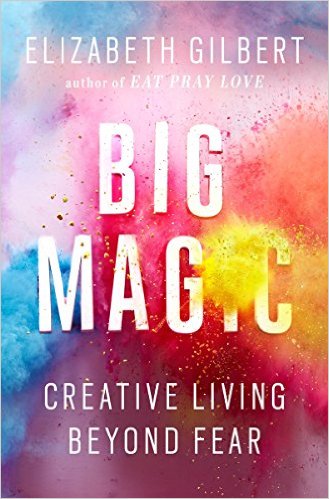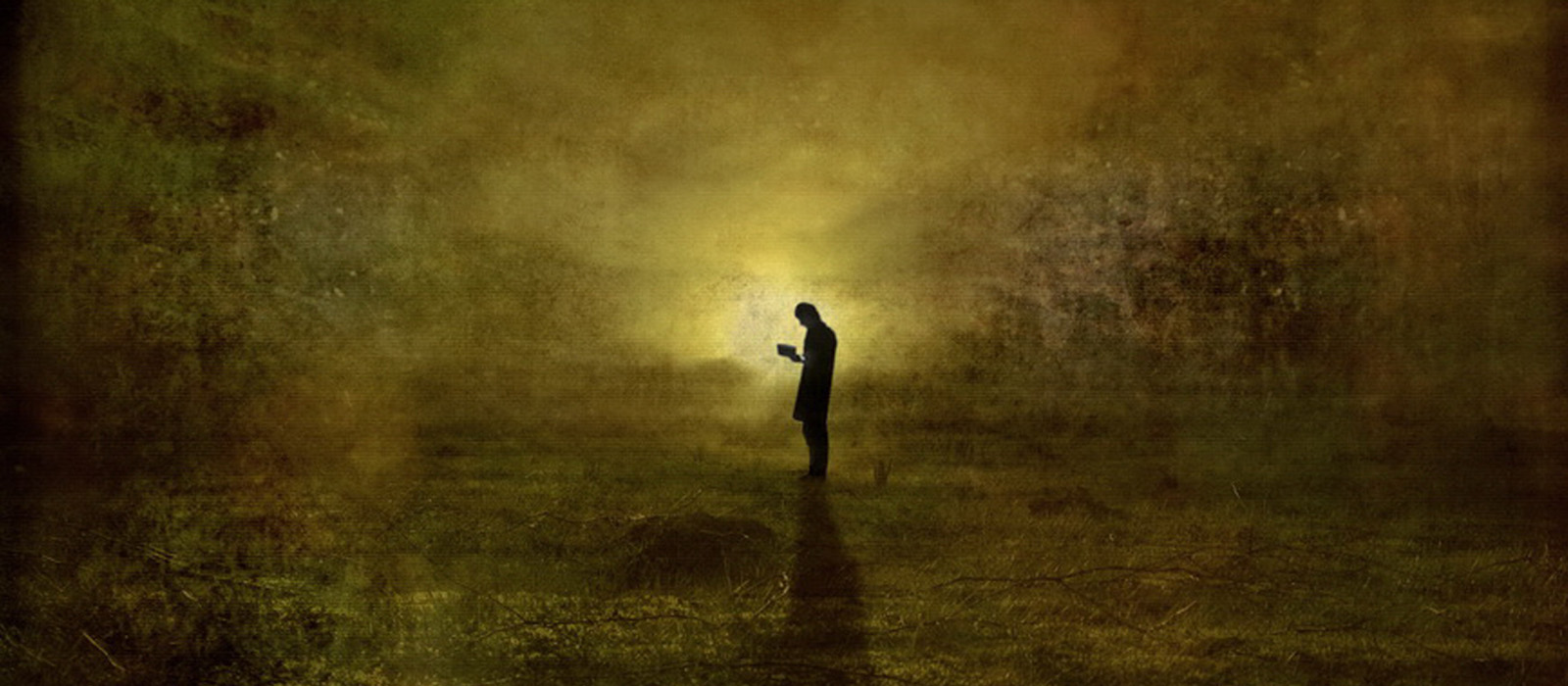T
he most recent book by Elizabeth Gilbert is Big Magic: Creative Living Beyond Fear. In it, she explores a number of interesting and insightful realizations she’s made throughout her career on  the subject of creativity. And of course, it’s written in a way only Elizabeth Gilbert can write: whimsical, funny, and to the point. Here are the 16 lessons on creativity I learned from my read.
the subject of creativity. And of course, it’s written in a way only Elizabeth Gilbert can write: whimsical, funny, and to the point. Here are the 16 lessons on creativity I learned from my read.
P.S. If you haven’t read the book yet, I definitely recommend you check it out. Buy it here.
1. Be Courageous
The first and probably most important point made in this book, was that creative individuals must be courageous. The courage to create, to put yourself out there, to expose your inner most self to the world, is no small task.
The universe buries strange jewels deep within us all, and then stands back to see if we can find them.
If we are brave enough, fearless enough, we can uncover these jewels, and create things that are beautiful. But if we succumb to our fears, our courage dies, as does our creativity. Be courageous.
2. Ideas Come And Go
In the book, Gilbert explains that ideas are everywhere in the world. They come and go, as moments of inspiration to any individual. If that person accepts them, nourishes them, and acts on them, they stick around. If they are ignored and forgotten that idea, that inspiration, will disappear as well.
When an idea thinks it has found somebody—say, you—who might be able to bring it into the world, the idea will pay you a visit. It will try to get your attention.
It’s a romantic idea and also one I’m sure we’ve all felt at some point in our lives, as inspiration comes and goes. The point is, when you have these moments of inspiration, take them seriously because they could just as well move on if you don’t.
3. Passion vs.Curiosity
The typical advice is always to follow your passion. Well no sh*t, but what if you don’t know what that is?! That’s often the problem in the first place. Instead, Gilbert offers an alternative path: follow your curiosity.
The stakes of curiosity are also far lower than the stakes of passion.
Curiosity only asks a simple question: Is there anything you’re interested in? Anything? Even a tiny bit?
Curiosity can take you to interesting, unexpected places, and possibly even to your passion. There’s no downside in following your curiosity.
4. Humans Are Meant To Create
If you go back throughout history, you’ll see people have always been creators. Not people sitting around, twiddling their thumbs, waiting for things to happen, but actually taking action.
You want to write a book? Make a song? Direct a movie? Decorate pottery? Learn a dance? Explore a new land? You want to draw a penis on your wall? Do it.
We make things because we like making things. And we should never stop.
5. You Don’t Need Permission
There’s a little secret that every creator needs to hear, you don’t need permission to live a creative life. You will never be able to create anything interesting out of your life if you don’t believe that you’re entitled to at least try.
You need that sense of entitlement, to be able to say that you belong there along with everyone else. It’s not that you’re saying “I am the greatest!” but merely saying “I am here!”
6. It’s Been Done Before, But Not By You
Originality is dead. Everything has been done in one form or another, but they have not been done by YOU.
Once you put your own expression and passion behind an idea, that idea becomes yours.
Authenticity and your own personal touch can make anything feel original.
7. Create For Yourself
Don’t make things for the recognition or the money or the fame. Do it for yourself. Do it because you enjoy it. Everything else is just a bonus.
Do whatever brings you to life, then. Follow your own fascinations, obsessions, and compulsions. Trust them. Create whatever causes a revolution in your heart.
8. Enjoy the Work, It Shouldn’t Be Painful
For some reason, artists have this misconception that making art should be painful. That it’s a daily struggle.
Norman Mailer claimed that every one of his books had killed him a little more. Philip Roth has never stopped talking about the medieval torments writing inflicted upon him for the duration of his long-suffering career. Oscar Wilde called the artistic existence “one long, lovely suicide.”
It doesn’t have to be this way. Creativity and art should be celebrated and more importantly, enjoyed.
9. You Will Fail
There’s no guarantee that you’ll succeed in a creative life. Most people who follow this path fail, a lot, but that rejection is part of the game.
There are people who haven’t even been born yet who are going to reject me someday.
You can succeed in a traditional career if you work hard at it, but it’s not so straight forward for creative endeavors.
So how do you deal with the failure and disappointment? You realize that the only thing suffering is your ego. Don’t let your ego run the show, you must also consider your soul. And in those times when you’re down, realize that your soul is just seeking more wonder. It has no care for success and failure, so if you can listen to your soul, you can keep making happily.
10. Don’t Complain
Complaining isn’t a good look. You’re trying to do something difficult, that’s true, but of course it’s difficult and no one wants to hear you complain anyways.
Quit your complaining. It’s not the world’s fault that you wanted to be an artist. It’s not the world’s job to enjoy the films you make, and it’s certainly not the world’s obligation to pay for your dreams. Nobody wants to hear it. Steal a camera if you must, but stop whining and get back to work. Werner Herzog
Complaining gets you nowhere. Just do the work.
11. Don’t Worry About Everyone Else
The simple fact is, most people are too engrossed with their own lives to worry about what you’re doing. You may delight them or they may overlook you completely, but it doesn’t matter. Just ignore them.
I can only be in charge of producing the work itself. That’s a hard enough job. I refuse to take on additional jobs, such as trying to police what anybody thinks about my work once it leaves my desk.
More importantly, you have to ignore the haters. There will always be critics, but if you’re creating for yourself, they don’t really matter.
12. Everything Sucks Part of the Time
No job, art, or endeavor is awesome all the time. They all come with their steady dose of sh*t you don’t like.
“Everything sucks, some of the time.” You just have to decide what sort of suckage you’re willing to deal with. So the question is not so much “What are you passionate about?” The question is “What are you passionate enough about that you can endure the most disagreeable aspects of the work?”Mark Manson
Find something you love enough that dealing with the bullshit is at least tolerable.
13. Keep your day job
This may sound ridiculous to the struggling artist that believes all they are meant to do is create, but it actually makes a lot of sense. Gilbert explains how she kept her day job until she had already written three books! Why? Because of how your relationship with your work changes, when it is also responsible for making you money.
There’s no dishonor in having a job. What is dishonorable is scaring away your creativity by demanding that it pay for your entire existence.
Your art can be on the side of your bread-and-butter job, but destroying the joy you get from it simply because you need to pay the bills, isn’t worth it. Not until you’ve made it, so to speak.
14. There’s Never Enough Time
I’m sure none of us find this surprising, but we still like to make excuses about about time. The fact is, there is never enough time and never a right time.
Most individuals have never had enough time, and they’ve never had enough resources, and they’ve never had enough support or patronage or reward . . . and yet still they persist in creating. They persist because they care. They persist because they are called to be makers, by any means necessary.
Time won’t be on your side, but if you truly have a desire to create, then you’ll make time.
15. Don’t Believe In Perfection
We like to call ourselves perfectionists, as if it’s a good thing, but it’s quite the opposite.
So many of us believe in perfection, which ruins everything else, because the perfect is not only the enemy of the good; it’s also the enemy of the realistic, the possible, and the fun.Rebecca Solnit
It’s just another form of fear, that prevents us from making or even starting on the things we want to do. Moreover, it stops us from putting that work into the world, because it isn’t quite right yet.
At some point, you just have to finish and ship your work. Even if it is so you can finally move on to the next thing, you have to ship. And the fact is, just the act of finishing a project puts you into a rare category of people. Done is better than good.
16. Always Keep Creating
Creating is a long and arduous path and as the failures pile up, it can be one you wish to run away from repeatedly. The trick is to simply shift gears in these situations. Do something new, something still creative, but not your usual endeavor.
Find something to do—anything, even a different sort of creative work altogether—just to take your mind off your anxiety and pressure.
Working on other forms of creative work can quiet your fears and lower the stakes of your creativity. Eventually, you’ll find yourself back to doing what you love, but that break can bring you back to it much faster.
__________
And that’s Big Magic. At least part of it anyways. If you enjoyed this post, please check out the book, as it’s filled with many more nuggets of wisdom on the subject of creativity.
Cheers!
Image via flickr.


Pingback: 16 Lessons on Creativity from Big Magic | Knowl...